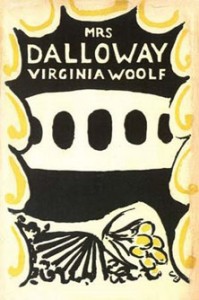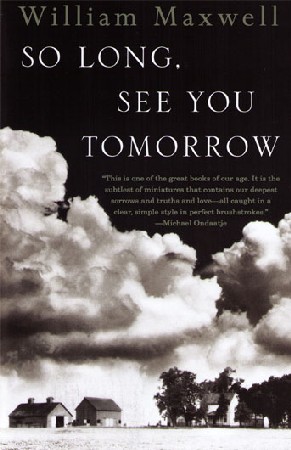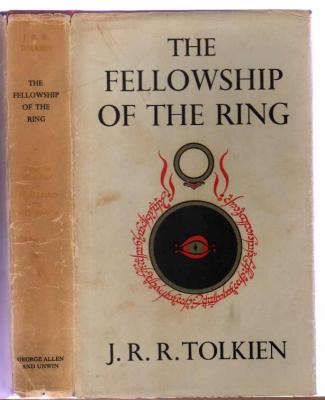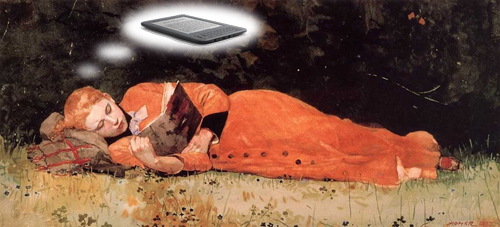Mrs. Dalloway
 Mrs. Dalloway (1925) is a brussels sprouts book for me. For some reason the M.A.S.H. episode where Radar is in love with someone musical, and Hawkeye Pierce coaches him that he should respond to anything said about Bach with a knowing “Ahhhh, Bach!” comes to mind. This is one of those well-known books I’d like to be able to discuss with a knowing “Ahhh, Mrs. Dalloway!” But instead I can only say that I appreciate at least part of its literary artistry, I can feel its heartbreak, but I can’t say I’ve plumbed its depths or, truth be told, come away feeling satisfied or enriched from reading it.
Mrs. Dalloway (1925) is a brussels sprouts book for me. For some reason the M.A.S.H. episode where Radar is in love with someone musical, and Hawkeye Pierce coaches him that he should respond to anything said about Bach with a knowing “Ahhhh, Bach!” comes to mind. This is one of those well-known books I’d like to be able to discuss with a knowing “Ahhh, Mrs. Dalloway!” But instead I can only say that I appreciate at least part of its literary artistry, I can feel its heartbreak, but I can’t say I’ve plumbed its depths or, truth be told, come away feeling satisfied or enriched from reading it.
Clarissa Dalloway is planning a party, and the entire novel takes place in this one day in London, narrated from within the perspective of several characters: Clarissa, her husband Richard, her old flame Peter, rigidly religious Miss Kilman, and a ravaged, suicidal war veteran named Septimus Smith. I read somewhere that Smith is the character into which Woolf pours her own suicidal consciousness, having struggled with depression and attempted suicide herself more than once by the time of the novel’s writing, and destined to die eventually by drowning herself.
The novel was a difficult read partly because of its style, a modified stream-of-consciousness that keeps us encased in the private thoughts of its narrators. It wasn’t as bad as Ulysses; there’s at least some syntax here. But this type of narrative forces us to wade through the associational ways that minds work, jumping from one subject to another, and from one temporal context to another, without explanation. My copy was from the public library and was not annotated, so it’s possible that the characters were alluding to significant historic events that I just didn’t pick up on without footnotes. But much of it seemed like, uh… drivel. (As is the case with most of us, if someone could capture our thought processes on paper!) It takes real work to stay focused on the text — work which I sometimes did, sometimes didn’t, do.
Here are some of the themes I did pick up on, most of them pretty sad. One is the failure of marriage in every instance. Why do the marriages fail? Peter and Clarissa both reflect on the way women become mouthpieces for their husbands and lose themselves, so there’s a commentary on patriarchal society and class restrictions. Another reason — Clarissa’s reason — is that in order to escape this, she chooses a kind, wealthy, appropriately classed man who gives her space. “For in marriage a little licence, a little independence there must be between people living together day in day out in the same house,” Clarissa reflects early on. On the face of it that sounds like wisdom. But it turns out that in choosing Richard Dalloway, Clarissa rejected Peter Walsh — who loves her passionately and would have ended up a much more intimate companion than Dalloway.
The novel takes place years after their marriage and finds Clarissa still solitary. “She could not dispel a virginity preserved through childbirth which clung to her like a sheet,” the narrator tells us:
She could see what she lacked. It was not beauty; it was not mind. It was something central which permeated; something warm which broke up surfaces and rippled the cold contact of man and woman, or of women together.
The brief reference in this chapter to her possible homosexual tendencies isn’t revisited. It’s not a book about that. This is one of a few passages where Woolf seems to be trying to make the point that Clarissa was once undiscriminatingly passionate, not always the frigid, varnished surface we find her now. It’s the idea of contact, or rather the lack thereof, that the story is preoccupied with.
In any case, she still spends great mental energy justifying her marriage choice. Peter too spends most of the novel thinking about her, and clearly still in love with her. But they are separated now by marriage and by the direction their lives have taken. Similarly Clarissa’s husband Richard, though they live together amiably, can’t tell her he loves her, and doesn’t share a room with her.
Failure to connect seems to be the central theme of the story. Septimus Smith isn’t given compassionate medical attention. Characters think obsessively about each other, but don’t make actual contact beyond unbearably superficial conventions. No one has the resources to deal with humanity. Maybe that’s why Big Ben is such a presence throughout, punctuating the day with its chimes, marking the contrast between the private, associational time of the characters as they struggle to make sense of the past, and the outer, sequential time of the clock.
It’s a good metaphor for the way conventions impose a mold on humanity in the story, but relentlessly, failing to acknowledge any of the unpredictable depths of real people, and failing to provide any way for them to meet and find meaning. For Clarissa, solitude = independence, and she lives as a shiny shell avoiding human contact, convincing herself that her mere impressions of others are the same as relationship. For Septimus Smith, death is preferable to any of the options presented. But for me, finishing the novel and closing it with a sigh was enough!


